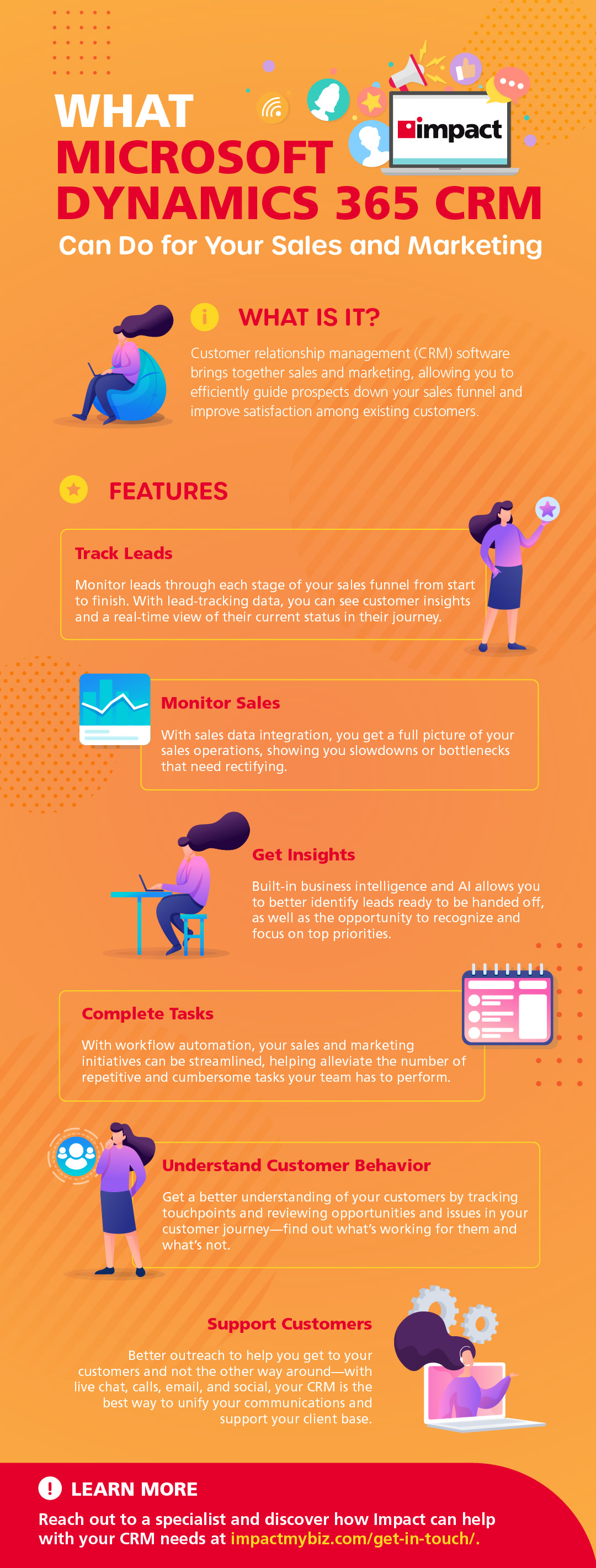Customer relationship management software (CRM) became the largest software market in the world back in 2017 and is expected to be worth $96.5 billion by 2028.
What is driving this enormous demand for CRMs like Dynamics 365 CRM? It won’t come as much of a surprise that the reason businesses are adopting this kind of software is to better serve their client base and reach out to new audiences.
Why are CRMs so uniquely capable of achieving this?
Primarily because they are able to unify a number of functions into one single platform while using modern technology to improve efficiency and effectiveness in marketing campaigns.
The worldwide market for marketing automation solutions was estimated at $6.9 billion in 2020 and is anticipated to almost triple to $19.7 billion in 2026.
What does this mean for businesses that want to improve their marketing and generate more leads and sales?
There will be a number of primary uses for organizations adopting a CRM for their company.
Firstly, the ability to leverage existing siloed data from across their lines of operation that was previously inaccessible to marketers.
A majority of respondents (57%) reported that CRMs are at least somewhat fragmented across the organization, with a few, many, or all departments having their own CRM. This is because many businesses purchase a CRM for one purpose and fail to integrate with all of their organizational data.
The benefits of this for a business are worth the investment for most, as it allows the company to maintain a positive relationship with a customer throughout their entire lifecycle—instead of them having a disjointed experience when talking to the staff of different departments, they will instead speak to staff who are well-informed of their situation from the get-go, whether it’s sales, service, commerce, or the back-office.
Organizations that use an organization-wide CRM platform report higher customer satisfaction scores than their peers, and with customer experience such an important part of sales and marketing today, this has proven to be a key differentiator between businesses today.
When you consider the capabilities that CRMs like Dynamics 365 CRM offer in terms of advanced analytics and automation, the possibilities for improving the customer experience are hard to ignore for organizations lacking these tools.
What Microsoft Dynamics 365 CRM Can Do for Your Sales and Marketing
Whether it’s segmentation, workflow automation, or lead nurturing, a lot can be done with a modern cloud CRM in a business today.
Take a look at this handy infographic to get an understanding of what benefits your sales and marketing can reap from a cloud CRM!

